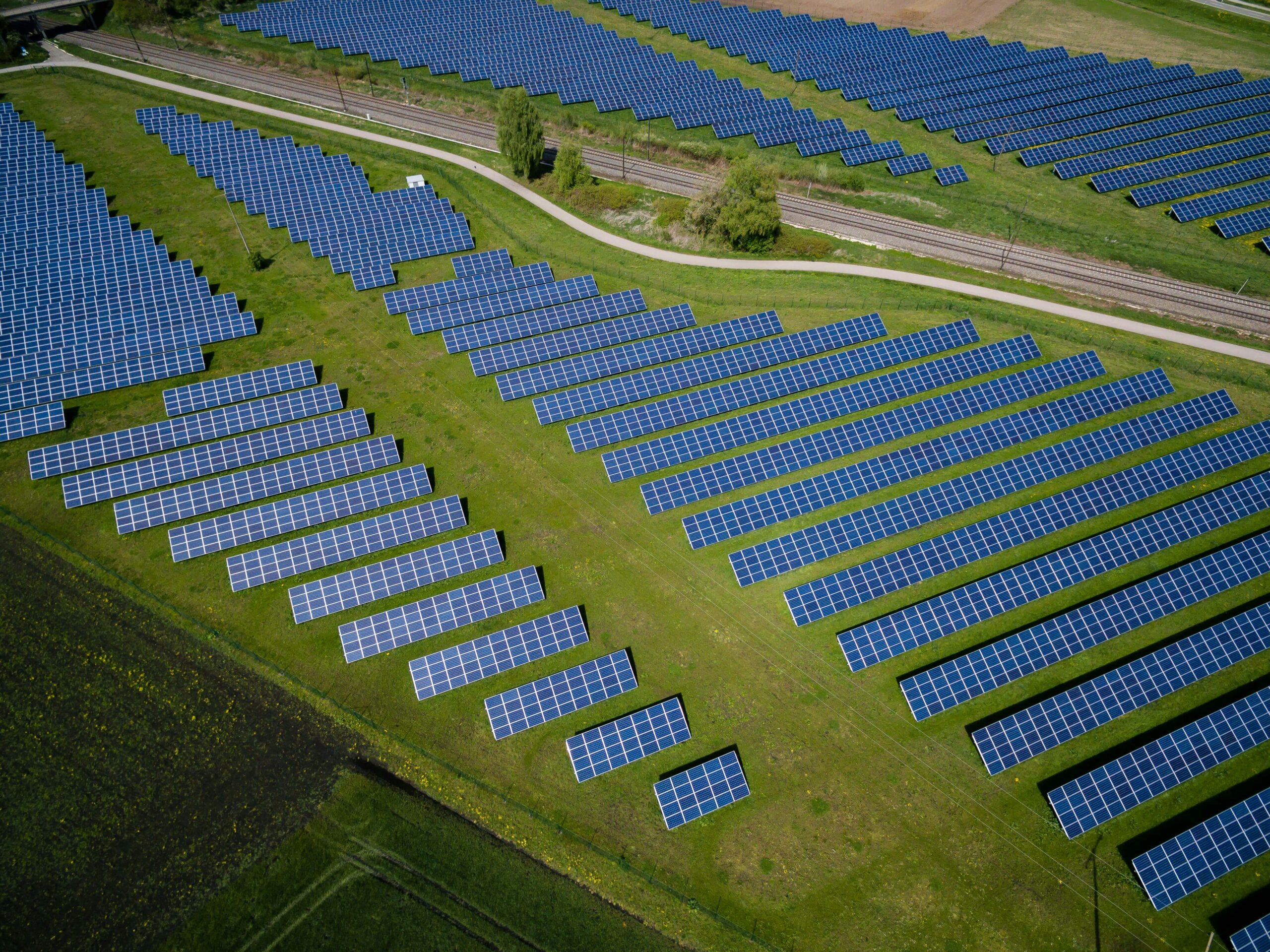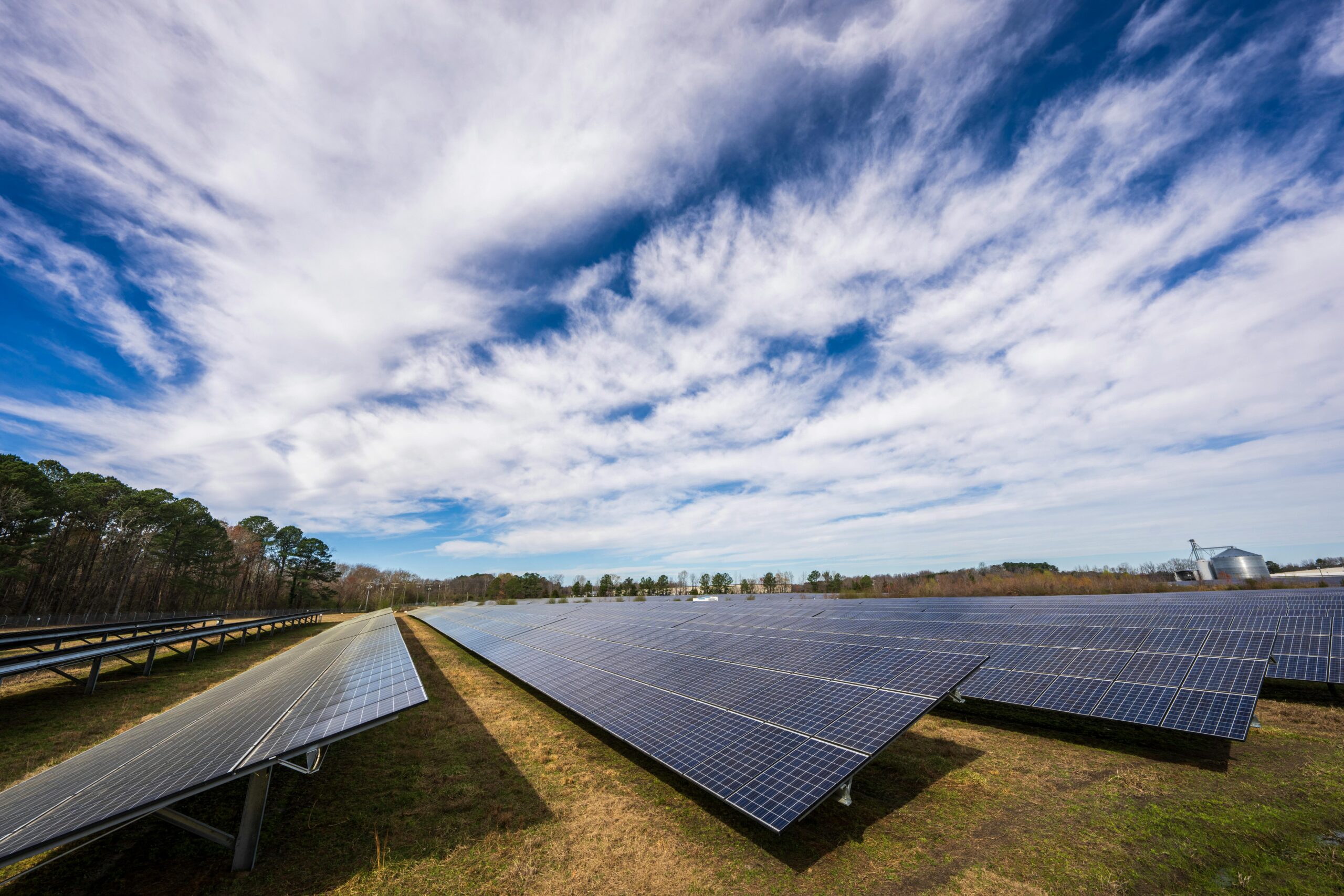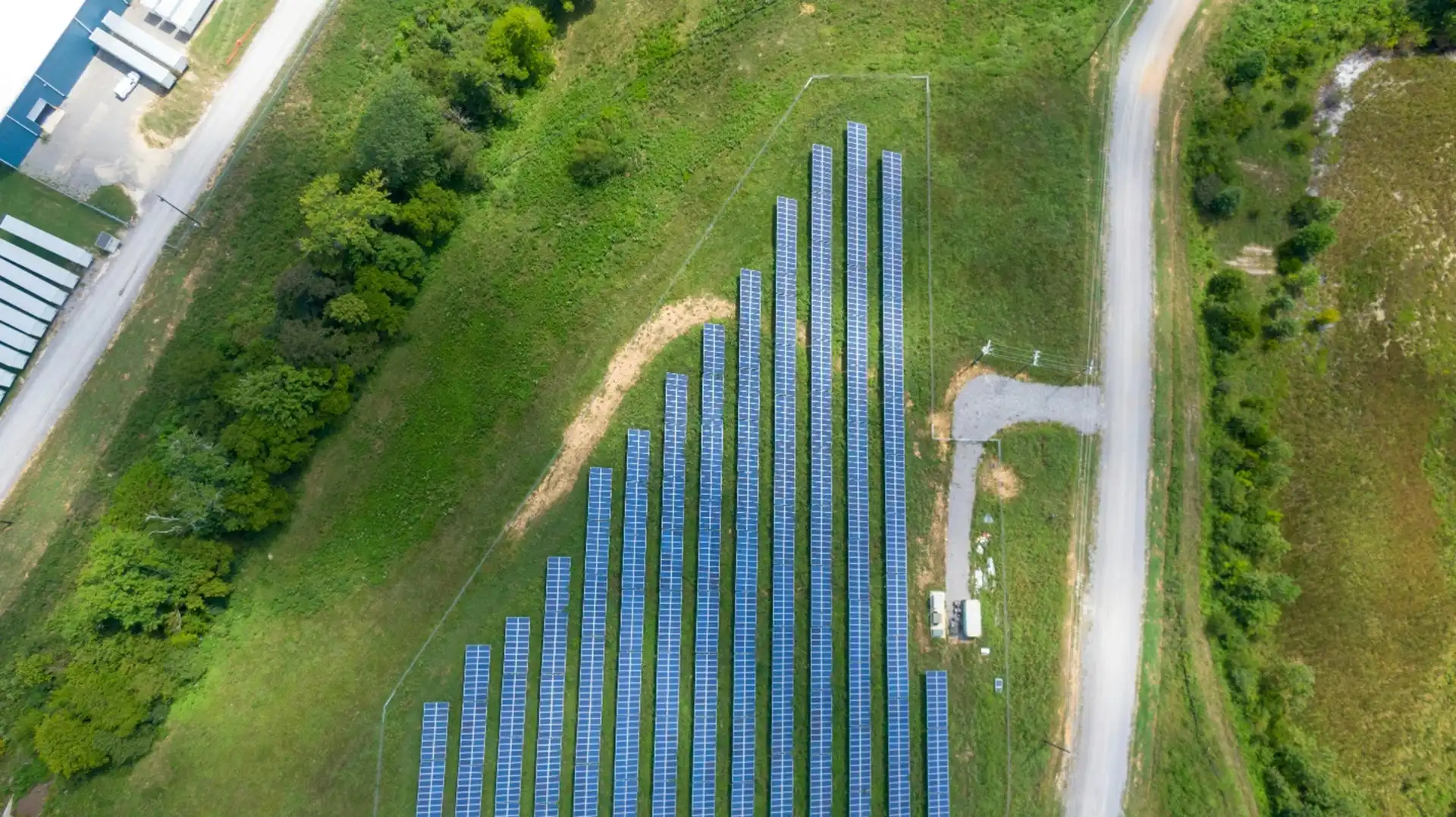Preventing Weather Delays in Solar Construction
When project schedules stretch across months and megawatts, a single storm front can derail budgets, crews, and investor confidence. Preventing Weather Delays in Solar is therefore both a construction discipline and a competitive advantage. Below is a comprehensive guide to keeping timelines intact, from early planning through commissioning, while meeting quality and safety targets.
Steps to Prevent Weather Delays in Solar
1. Understand the Local Climate Before You Bid
Every region has its own weather signature. Gulf-coast installers expect daily summer thunderstorms; High Plains crews brace for high-velocity winds; desert teams manage flash-flood risks after rare cloudbursts. Begin with a climate study that details:
- Seasonal precipitation totals
- Average wind speeds and gust records
- Freeze-thaw cycles that affect concrete cure times
- Lightning-strike frequency (critical for grounding design)
Pair historical data with modern probabilistic forecasts from agencies such as NOAA and local universities. Building this profile before pricing the job keeps “weather day” contingencies realistic instead of arbitrary.
2. Design the Schedule Around Seasonal Windows
Even utility-scale sites that run year-round can sequence trades to minimize exposure:
| Project Phase | Best Seasonal Window | Reason |
| Site clearing & grading | Late summer in snow climates | Dry soil supports heavy equipment, reduces sediment control risk |
| Pile driving & foundations | Post-monsoon dry period | Lower groundwater, fewer lightning delays |
| Tracker installation | Shoulder seasons (spring/fall) | Moderate temps reduce thermal expansion alignment errors |
| Module set & wiring | Late winter in arid zones | Cooler temps protect crew health, winds calmer than fall |
Such sequencing shortens total calendar days by avoiding predictable shutdowns. Contingency buffers can then focus on truly unpredictable extremes.
3. Harden the System to Withstand Storms
Weather delays are not limited to lost workdays; rework after damage consumes weeks. The National Renewable Energy Laboratory (NREL) details checklist-driven steps that boost survivability of photovoltaic (PV) arrays during hurricanes and severe storms, including tightened anchoring hardware, secure cable routing, and verified conduit seals. Incorporating these measures in the initial scope reduces the chance that an unexpected gale forces retrofits mid-build.
FEMA’s Recovery Advisory on rooftop solar attachment likewise stresses code-compliant fastening patterns and periodic torque checks to keep panels from becoming wind-borne projectiles. Ground-mount projects benefit from the same mindset: build it strong the first time and sidestep post-storm remediation.
Key takeaways for utility-scale arrays:
- Increase racking rail count or cross-bracing in high-wind corridors.
- Specify corrosion-resistant hardware for coastal or chemical-laden air.
- Route DC wiring in metal clips, not plastic ties that embrittle under UV.
- Verify grounding pathways to avoid lightning-induced equipment damage.
4. Integrate Advanced Forecasting Into Daily Operations
Old-school barometers have given way to AI-enhanced models that feed real-time alerts to superintendents. Tools such as:
- High-resolution radar nowcasting (up to 3-hour look-ahead)
- 10-day ensemble forecasts highlighting probability envelopes
- Lightning detection networks with geofenced push notifications
When integrated into project management software, these datasets support go/no-go decisions before crews roll out. For example, crane lifts above 20 mph can be rescheduled 48 hours ahead when ensemble models flag a wind spike.
5. Engineer the Site for Rapid Recovery
Even with perfect planning, extreme events may still halt work. Resilient site design accelerates restart:
- All-weather access roads – Compact crushed stone sub-bases shed water and prevent haul-truck bog-downs after rain.
- Drainage swales and detention basins – Temporary ponds capture runoff, protecting work pads from erosion.
- Lay-down areas on geotextile fabric – Components stay dry and mud-free, eliminating time-consuming cleaning.
- Portable shelters and tool containers – Moveable structures safeguard sensitive equipment when a sudden squall approaches.
By making recovery part of the civil package, you convert potential multi-day stoppages into a morning cleanup.
6. Build Weather-Smart Contracts
Contract language often decides who carries the cost of delay. Best-practice clauses include:
- Defined weather thresholds – Specify measurable criteria (e.g., rain > 0.5 inches in 24 hours, wind gusts > 35 mph) that trigger excusable delay.
- Shared contingency pools – Allocate a set number of weather days that belong to the project, not the contractor or owner alone.
- Acceleration options – Pre-price overtime or weekend work to recapture schedule if the contingency is exhausted.
Transparent terms prevent adversarial change-order battles and keep every stakeholder focused on the end date.
7. Train Crews for Rapid Mobilization After Shut-Downs
A thunderstorm break does not have to mean idle hours. Cross-train personnel so that when lightning alarms clear the field, teams pivot to:
- Indoor fabrication of wire harnesses
- Preventive maintenance on tracked vehicles
- Quality-control documentation catch-up
- Toolbox safety briefings tied to the current weather event
These micro-tasks convert weather interruptions into productive time, cutting waste from the critical path.
8. Leverage Modular and Prefabricated Components
Off-site fabrication shifts labor from unpredictable field conditions to controlled factory floors. For example:
- Pre-assembled tracker rows that ship in six-panel sections
- Integrated combiner boxes with plug-and-play connectors
- Skid-mounted inverter-transformer stations
Because the bulk of the labor happens indoors, weather influences only the final lift and anchor operation. The net effect is fewer days exposed to rain, heat, or wind.
9. Document and Review Weather Impacts for Continuous Improvement
Post-project lessons learned close the loop. Track:
- Actual weather delay days vs. contingency
- Damage incidents and associated rework hours
- Effectiveness of forecasting tools (false-positive vs. false-negative alerts)
- Cost impact of mitigation measures versus savings
Feed this data into bidding models on the next solar farm. Over time, your contingencies shrink and competitiveness grows.
10. The Bottom Line
Preventing weather delays in solar hinges on proactive intelligence, resilient engineering, and agile field management. Climate studies set realistic expectations, hardened designs avoid rework, and technology-enabled forecasting turns potential stand-downs into schedule-safe pauses. By weaving these practices into contracts, culture, and construction methods, developers and EPC partners keep megawatt milestones intact and deliver energy to the grid on time.
For Ansgar Solar, integrating these strategies not only protects margins but also reinforces a reputation for reliability in every climate zone.
Solar Project Scheduling: How Ansgar Avoids Bottlenecks
In the commercial and utility-scale solar sector, success is often measured by how fast and reliably a system can go from concept to commissioning. While solar technology continues to evolve, the greatest inefficiencies in many projects still stem from poor scheduling. At Ansgar Solar, project scheduling is not just a line item on a checklist—it is a strategic process designed to maintain momentum and avoid costly delays.
By aligning people, equipment, permitting, and materials from the earliest stages, Ansgar Solar helps developers and owners meet their targets and stay on budget. This article breaks down what goes into effective solar project scheduling and why it matters more than ever in today’s rapidly growing renewable energy market.
Why Scheduling Matters in Solar Projects
In solar construction, missed milestones are more than an inconvenience. They can cause projects to miss critical tax credit windows, lose investor confidence, or breach power purchase agreement (PPA) timelines. These impacts affect everything from cash flow to energy output guarantees.
Ansgar Solar’s approach is designed to align each milestone with project priorities and to spot risks before they affect timelines.
Key Phases of Solar Project Scheduling
1. Pre-Construction Planning & Constructability
Before the first boot hits the ground or the first post is driven, Ansgar works with stakeholders to define deliverables and determine key schedule drivers. These include:
- Site surveys and geotechnical evaluations
- Equipment procurement & Receiving timelines
- Labor availability windows
This stage requires close collaboration with utilities, engineers, and permitting agencies. Waiting until construction to identify these items can delay a project by several months.
2. Permitting and Regulatory Compliance
Permitting is often one of the most time-consuming elements of solar project development. Requirements vary by state, county, and even local jurisdiction. Agencies may include zoning boards, environmental agencies, and historic preservation commissions.
The National Renewable Energy Laboratory (NREL) has published findings that permitting and interconnection processes can significantly affect project timelines and increase soft costs. Ansgar Solar accounts for this in the scheduling process by front-loading permitting applications and maintaining regular follow-up with authorities.
3. Procurement and Logistics Coordination
The global solar supply chain has grown more complex in recent years. Delays in module delivery, inverters, or racking systems can halt progress at critical points. To avoid this, Ansgar maps out material lead times with manufacturers early in the process and includes a buffer in the schedule to account for potential shipping issues.
In addition, Ansgar’s team coordinates transportation with crane services and site staging, so that deliveries arrive in sync with installation crew readiness.
4. Labor Scheduling and Crew Sequencing
Solar construction requires specialized labor at different phases of the job:
- Civil teams for grading and foundations
- Mechanical crews for racking and modules
- Electrical teams for wiring and interconnection
- Commissioning and testing technicians
Ansgar Solar uses integrated labor planning tools that sequence crews based on project size, layout, and geography. This helps avoid downtime caused by overlapping scopes or crew availability conflicts.
5. Weather and Seasonal Considerations
Weather is one of the most unpredictable variables in solar construction. In colder climates, frozen ground can delay pile driving. In desert environments, extreme heat may limit daytime working hours.
By evaluating regional climate patterns during the planning phase, Ansgar factors these into the schedule. For example, in northern regions, pile driving may be prioritized before frost conditions set in. Likewise, module installation may be scheduled to avoid monsoon seasons or hurricane risk periods.
6. Utility Coordination and Interconnection
Connecting to the grid involves multiple stages of review, approval, and testing. Interconnection studies, design reviews, and witness testing all require utility coordination. Each utility has its own timeline and process.
Ansgar engages with utility providers from the beginning and incorporates their timelines into the project schedule. By doing so, they prevent a common problem where a site is mechanically complete but cannot export power due to interconnection delays.
7. Punch List and Commissioning Planning
Final project stages often get overlooked in early scheduling conversations, but they are critical to completion. Walkthroughs, testing, punch list items, and closeout documentation all need time allocation.
Ansgar schedules commissioning activities in parallel with construction when possible, allowing any necessary corrections to be handled quickly without extending the timeline.
How Ansgar Solar Keeps Projects on Track
Transparent Communication with Stakeholders
Every week of delay costs the client money. That’s why Ansgar Solar maintains real-time schedule tracking and communicates progress updates regularly to developers, EPCs, and site owners. This transparency builds trust and allows for faster adjustments when changes occur.
Schedule Compression Techniques
If an unexpected delay threatens the completion date, Ansgar uses proven schedule compression methods such as:
- We start by looking at Construction sequence and build velocity
- Fast-tracking parallel activities
- Increasing manpower in key areas to open additional work fronts
- Prefabrication of components off-site
- Accelerating inspection and permitting checklists
These techniques are carefully evaluated to avoid safety or quality risks while making up lost time.
Contingency Planning
Not every variable can be predicted, but having contingency buffers in the schedule allows the team to adapt. These buffers may be added to procurement lead times, weather days, or inspection timelines. Ansgar reviews these during each phase gate to determine whether they are still necessary or can be reallocated.
The Bottom Line: Time is a Value Driver
In the world of solar energy, time is often as valuable as the electricity generated. Financiers, utilities, and owners all depend on timely delivery to meet performance expectations and contractual obligations. Every delay ripples across cost, reputation, and energy generation timelines.
Ansgar Solar brings structure to the chaos with proven solar project scheduling techniques. By combining industry expertise, proactive planning, and agile adjustments, the team helps clients avoid the traps that stall other installations. Whether it’s a 500 kW rooftop system or a 100 MW ground-mount project, the scheduling approach remains the same: proactive, practical, and performance-driven.
Why Partnering with an Experienced Solar Installation Crew Matters
The demand for solar energy is surging as businesses and communities look for sustainable and cost-effective power solutions. With this growth comes a critical decision for project owners: selecting the right solar installation team. The expertise of a solar crew plays a key role in the efficiency, reliability, and long-term performance of a solar energy system. A well-trained team brings technical skill and an understanding of site-specific challenges, regulatory requirements, and industry best practices.
Choosing an experienced solar installation provider can mean the difference between a project that maximizes energy production and one that suffers from delays, inefficiencies, or long-term performance issues. This article explores the importance of working with a seasoned solar installation team and how it impacts the success of solar projects.
The Complexity of Solar Installation
Installing a solar energy system requires more than just placing panels on a structure or open land. From site preparation to electrical integration, the process demands precision.
- Site Assessment and Engineering – Before installation begins, the site must be evaluated for shading, soil conditions (for ground-mounted systems), and structural integrity (for rooftop installations). An experienced team conducts thorough site analysis and optimizes the design for peak energy production.
- Regulatory Compliance – Solar projects must meet federal, state, and local regulations, including zoning laws, electrical codes, and permitting requirements. Teams with industry knowledge navigate these complexities efficiently, avoiding costly project delays.
- Electrical System Integration – Solar energy systems must be properly integrated with existing electrical infrastructure. Certified professionals understand grid interconnection requirements, ensuring that the system operates safely and complies with regulations like those outlined by the U.S. Department of Energy.
- Long-Term Performance Considerations – The efficiency of a solar system depends on precise panel alignment, correct wiring, and high-quality racking and mounting solutions. Experienced crews know how to optimize each of these factors to maximize energy yield.
The Risks of Hiring an Inexperienced Solar Installation Team
Partnering with an unqualified crew can lead to significant financial and operational setbacks. Some of the most common risks include:
1. Poor System Performance
An improperly installed system may produce less power than expected due to incorrect panel placement, shading issues, or inefficient wiring. Experienced installers take time to calculate the best panel angles and spacing to capture maximum sunlight throughout the year.
2. Safety Hazards
Solar installations involve electrical work, heavy lifting, and working at heights. A poorly trained crew increases the risk of electrical faults, fire hazards, or structural damage. According to the Occupational Safety and Health Administration, falls are the leading cause of injury in the construction industry. A professional crew follows industry safety protocols to prevent accidents.
3. Delayed Timelines and Increased Costs
Mistakes during installation often result in project delays and additional costs for repairs or redesigns. Inexperienced teams may struggle with obtaining permits, handling unexpected site challenges, or meeting utility company requirements for grid connection.
4. Voided Warranties and Legal Issues
Many solar panel manufacturers require installation by certified professionals to maintain warranty coverage. Improper installation could void warranties, leaving the project owner responsible for costly repairs. Additionally, failure to comply with local regulations may result in fines or legal action.
Key Benefits of Partnering with an Experienced Solar Installation Team
1. Efficiency and Accuracy in Installation
A seasoned team follows industry best practices, working efficiently without compromising quality. They use advanced tools and techniques to secure panels, minimize wiring losses, and install systems in a way that optimizes energy production.
2. Faster Project Completion
Experienced crews complete projects on schedule by anticipating challenges and addressing them proactively. Their familiarity with permitting processes and local codes allows them to navigate approvals faster than inexperienced installers.
3. Compliance with Industry Standards
Professional solar teams stay up to date with evolving industry standards and regulations, including National Electrical Code (NEC) requirements and grid interconnection guidelines. This expertise reduces the risk of compliance issues and streamlines the approval process.
4. Long-Term System Reliability
High-quality installations result in fewer maintenance issues and longer system lifespans. Proper sealing, mounting, and electrical work protect against environmental damage and performance degradation over time.
5. Enhanced Safety Measures
Experienced crews prioritize safety at every stage of installation. They use appropriate fall protection, adhere to electrical safety guidelines, and conduct quality assurance checks to confirm all components function correctly.
Choosing the Right Solar Installation Partner
With many solar installation companies available, selecting the right team requires careful evaluation. Here are some key factors to consider when making your decision:
1. Proven Track Record
Look for a company with a history of successful projects. Request case studies or testimonials from past clients to gauge their expertise and customer satisfaction.
2. Certifications and Training
Check for certifications such as NABCEP (North American Board of Certified Energy Practitioners) accreditation, OSHA safety training, and state licensing for electrical work. These credentials demonstrate a commitment to high-quality workmanship.
3. Knowledge of Local Regulations
Each region has different permitting requirements and interconnection policies. A team familiar with local codes and utility company requirements can prevent unnecessary delays.
4. Transparent Pricing and Contracts
An experienced company provides clear, detailed proposals outlining costs, timelines, and system specifications. Avoid companies that offer vague estimates or push for aggressive upselling.
5. Strong Warranty and Support
Reliable installers stand behind their work with performance guarantees and post-installation support. Ask about warranty coverage for labor and components before signing a contract.
Conclusion
Choosing the right solar installation team is one of the most important decisions in a solar energy project. A knowledgeable crew brings the expertise needed to optimize energy production, comply with regulations, and maintain long-term system performance. While it may be tempting to go with a lower-cost provider, the risks of hiring an inexperienced team far outweigh the short-term savings.
By working with a professional, well-trained solar installation crew, project owners can have confidence in the quality, safety, and efficiency of their investment. As solar energy continues to expand, experienced teams will play an essential role in delivering high-performance solutions that support long-term sustainability goals.
Solar Labor Services for Efficient Project Execution
As the solar industry continues to expand, the demand for specialized labor solutions has never been greater. The increasing adoption of renewable energy, driven by both economic and environmental incentives, requires a reliable workforce capable of supporting large-scale solar projects. From initial site preparation to the final installation, having access to experienced and adaptable labor is critical for maintaining project efficiency, safety, and quality.
The Role of Skilled Labor in Solar Construction
Solar projects require a workforce skilled in various aspects of construction, electrical work, and system integration. Whether it’s handling photovoltaic (PV) module installation, managing tracker systems, or overseeing pile driving operations, each phase of a solar project depends on specialized expertise. Ansgar Solar provides flexible labor solutions that align with the evolving needs of solar energy developers, ensuring that projects remain on schedule and within budget.
General Labor Support
Solar projects often demand a significant number of general laborers for tasks such as site clearing, material handling, and foundation work. These roles may not require advanced technical expertise but are essential in keeping the workflow steady and organized. Proper training and safety protocols enable these workers to contribute effectively while maintaining a secure work environment.
Technical Labor and Specialized Support
Beyond general labor, solar projects require skilled technicians who understand the intricacies of solar panel installation, electrical wiring, and mounting system assembly. A workforce trained in industry best practices contributes to greater energy output, improved longevity of the system, and fewer operational setbacks. Technicians adept at troubleshooting and conducting quality assurance checks play a vital role in ensuring system performance meets or exceeds expectations.
Flexibility in Solar Workforce Solutions
Project timelines in the solar industry can be highly variable due to factors such as permitting delays, weather conditions, and supply chain disruptions. A flexible labor model allows solar developers to scale their workforce up or down based on current project needs. Ansgar Solar specializes in providing adaptable staffing solutions, offering workforce support that aligns with fluctuating project demands without compromising productivity or efficiency.
Short-Term vs. Long-Term Labor Needs
Some solar projects may require temporary labor for rapid deployment, while others benefit from a consistent workforce throughout the entire construction phase. Partnering with a labor provider that understands these dynamics allows solar firms to allocate resources effectively and avoid unnecessary overhead costs.
Safety and Productivity in Solar Labor Services
The solar industry prioritizes workplace safety, given the nature of construction work and electrical installations. According to the Occupational Safety and Health Administration (OSHA) proper safety training, equipment handling, and compliance with industry regulations significantly reduce the risk of job site incidents. A workforce trained in safety best practices not only protects workers but also prevents costly project delays due to injuries or compliance violations.
Moreover, productivity in solar labor services hinges on the ability to work efficiently while maintaining high-quality standards. Proper training, clear communication, and the use of advanced tools and methodologies contribute to a smoother project flow.
The Impact of Labor on Solar Project Costs
Labor represents a substantial portion of the total costs in solar project development. According to the U.S. Department of Energy (DOE), labor costs can account for up to 30% of the total expenses in utility-scale solar installations. Efficient labor management—through strategic workforce planning, skilled staffing, and the integration of advanced construction techniques—helps optimize costs while maintaining project integrity.
The Future of Solar Labor Services
As solar technology advances and project scopes become more complex, the demand for experienced labor solutions will continue to rise. Emerging trends such as robotic-assisted installations and automated tracking systems may reduce some manual labor requirements, but human expertise will remain essential for ensuring seamless project execution.
Ansgar Solar remains committed to providing the industry with a skilled, adaptable, and safety-conscious workforce. By offering tailored labor solutions for every phase of solar construction, we contribute to the ongoing expansion of renewable energy infrastructure while supporting project developers in meeting their goals efficiently and cost-effectively.
Conclusion
The success of solar projects depends not only on high-quality materials and engineering but also on the availability of skilled labor. With a strong workforce strategy in place, developers can navigate project complexities, maintain high safety standards, and achieve optimal efficiency. Ansgar Solar continues to support the renewable energy sector by delivering reliable labor solutions that keep projects moving forward with confidence.
For solar developers seeking a workforce that meets the highest industry standards, partnering with a dedicated labor provider is a strategic step toward long-term success.
Building Strong Relationships: Clients, Partners, and Communities
In the renewable energy industry, success is about more than technology and efficiency—it’s about people. At Ansgar Solar, we believe that building strong, lasting relationships with clients, partners, and communities is the cornerstone of sustainable success. Our collaborative approach ensures mutual trust, effective communication, and shared success, making Ansgar Solar a preferred partner in solar energy solutions.
Client-Centric Philosophy
At the heart of Ansgar Solar’s relationship-building strategy is our dedication to understanding and meeting client needs. We prioritize open communication and collaboration, ensuring that every project is tailored to deliver maximum value.
- Transparent Communication: From initial consultation to project completion, we maintain clear and consistent communication. Clients are kept informed at every stage, fostering trust and reducing uncertainties.
- Customized Solutions: No two projects are the same. We take the time to understand each client’s goals, budget, and site-specific requirements, delivering tailored solar solutions that exceed expectations.
- Post-Installation Support: Our commitment doesn’t end with installation. We offer ongoing maintenance and support to ensure long-term performance, reinforcing our dedication to client satisfaction.
By focusing on the client experience, Ansgar Solar builds relationships that last beyond the lifespan of a single project.
Strong Partnerships for Success
Ansgar Solar recognizes the importance of working with trusted partners to deliver exceptional results. Our partnerships with suppliers, contractors, and industry organizations enable us to maintain the highest standards in solar energy.
- Collaborative Project Planning: We engage with partners early in the process to align goals and expectations. This collaborative approach ensures seamless project execution and enhances efficiency.
- Reliable Supply Chains: Through relationships with leading suppliers, we secure high-quality materials and components for every project. These partnerships help us deliver reliable and durable solar systems.
- Shared Innovation: Working with industry leaders allows us to stay ahead of the curve in solar technology and installation techniques. Together, we drive innovation and push the boundaries of what’s possible.
By fostering partnerships built on mutual respect and shared goals, Ansgar Solar enhances the value we deliver to clients and communities alike.
Engaging with Communities
Beyond clients and partners, Ansgar Solar is deeply committed to the communities where we work. We understand that solar projects have a profound impact on local environments and economies, and we strive to leave a positive legacy.
- Local Workforce Development: Whenever possible, we hire and train local workers, creating jobs and building skills within the community.
- Environmental Stewardship: Our projects prioritize sustainability, ensuring that communities benefit from clean energy while preserving natural resources.
Through community engagement, we build goodwill and demonstrate our commitment to making a positive impact.
The Importance of Trust
Trust is the foundation of every relationship at Ansgar Solar. Whether we’re working with a new client, a long-time partner, or a local community, we prioritize honesty, accountability, and reliability. This trust is built through:
- Delivering on Promises: Meeting deadlines, staying within budgets, and exceeding expectations are all part of the Ansgar Solar standard.
- Consistent Quality: From small-scale projects to large installations, our commitment to quality never wavers.
- Proactive Problem Solving: Challenges are inevitable in any project, but our proactive approach ensures quick resolutions with minimal disruption.
By consistently demonstrating our reliability, we earn the trust of those we work with, turning transactions into partnerships.
Leveraging Technology for Better Relationships
Ansgar Solar uses technology to enhance collaboration and communication. Advanced project management tools provide clients and partners with real-time updates, ensuring everyone stays informed. Additionally, our use of digital platforms facilitates seamless communication, even across multiple stakeholders.
By leveraging technology, we streamline processes, reduce misunderstandings, and strengthen our relationships with everyone involved in a project.
Recognizing the Value of Feedback
Building strong relationships requires listening as much as leading. At Ansgar Solar, we actively seek feedback from clients, partners, and community members to continuously improve our processes and services. This feedback loop helps us identify areas for improvement and reinforce what we’re doing well.
Celebrating Collaborative Success
The relationships Ansgar Solar builds aren’t just professional—they’re partnerships in progress. Our collaborative approach creates a sense of shared accomplishment, where every stakeholder can take pride in the success of a project. Whether it’s a satisfied client, a trusted supplier, or a thriving community, our focus on relationships ensures that everyone benefits.
Conclusion
Ansgar Solar’s success is powered by people. Our commitment to building strong relationships with clients, partners, and communities is as integral to our operations as our technology and expertise. By fostering trust, collaboration, and shared goals, we create a foundation for lasting success in every project we undertake.
Choosing Ansgar Solar means choosing a partner that values relationships as much as results. Together, we’re not just building solar systems—we’re building a better future.





